- Home
- Robert E. Howard
People of the Dark Robert Ervin Howard Page 2
People of the Dark Robert Ervin Howard Read online
Page 2
Close to the encampment of the tribesmen were the fires of a group of Britons — members of fierce tribes who lived south of the Roman Wall but who dwelt in the hills and forests to the west and defied the power of Rome. Powerfully built men they were, with blazing blue eyes and shocks of tousled yellow hair, such men as had thronged the Ceanntish beaches when Caesar brought the Eagles into the Isles. These men, like the Picts, wore no armor, and were clad scantily in coarse-worked cloth and deerskin sandals. They bore small round bucklers of hard wood, braced with bronze, to be worn on the left arm, and long heavy bronze swords with blunt points. Some had bows, though the Britons were indifferent archers. Their bows were shorter than the Picts’ and effective only at close range. But ranged close by their fires were the weapons that had made the name Briton a word of terror to Pict, Roman and Norse raider alike. Within the circle of firelight stood fifty bronze chariots with long cruel blades curving out from the sides. One of these blades could dismember half a dozen men at once. Tethered close by under the vigilant eyes of their guards grazed the chariot horses — big, rangy steeds, swift and powerful.
“Would that we had more of them!” mused Bran. “With a thousand chariots and my bowmen I could drive the legions into the sea.”
“The free British tribes must eventually fall before Rome,” said Cormac. “It would seem they would rush to join you in your war.”
Bran made a helpless gesture. “The fickleness of the Celt. They can not forget old feuds. Our ancient men have told us how they would not even unite against Caesar when the Romans first came. They will not make head against a common foe together. These men came to me because of some dispute with their chief, but I can not depend on them when they are not actually fighting.”
Cormac nodded. “I know; Caesar conquered Gaul by playing one tribe against another. My own people shift and change with the waxing and waning of the tides. But of all Celts, the Cymry are the most changeable, the least stable. Not many centuries ago my own Gaelic ancestors wrested Erin from the Cymric Danaans, because though they outnumbered us, they opposed us as separate tribes, rather than as a nation.”
“And so these Cymric Britons face Rome,” said Bran. “These will aid us on the morrow. Further I can not say. But how shall I expect loyalty from alien tribes, who am not sure of my own people? Thousands lurk in the hills, holding aloof. I am king in name only. Let me win tomorrow and they will flock to my standard; if I lose, they will scatter like birds before a cold wind.”
A chorus of rough welcome greeted the two leaders as they entered the camp of Cormac’s Gaels. Five hundred in number they were, tall rangy men, black-haired and gray-eyed mainly, with the bearing of men who lived by war alone. While there was nothing like close discipline among them, there was an air of more system and practical order than existed in the lines of the Picts and Britons. These men were of the last Celtic race to invade the Isles and their barbaric civilization was of much higher order than that of their Cymric kin. The ancestors of the Gaels had learned the arts of war on the vast plains of Scythia and at the courts of the Pharaohs where they had fought as mercenaries of Egypt, and much of what they learned they brought into Ireland with them. Excelling in metal work, they were armed, not with clumsy bronze swords, but with high-grade weapons of iron.
They were clad in well-woven kilts and leathern sandals. Each wore a light shirt of chain mail and a vizorless helmet, but this was all of their defensive armor. Celts, Gaelic or Brythonic, were prone to judge a man’s valor by the amount of armor he wore. The Britons who faced Caesar deemed the Romans cowards because they cased themselves in metal, and many centuries later the Irish clans thought the same of the mail-clad Norman knights of Strongbow.
Cormac’s warriors were horsemen. They neither knew nor esteemed the use of the bow. They bore the inevitable round, metal-braced buckler, dirks, long straight swords and light single-handed axes. Their tethered horses grazed not far away — big-boned animals, not so ponderous as those raised by the Britons, but swifter.
Bran’s eyes lighted as the two strode through the camp. “These men are keen-beaked birds of war! See how they whet their axes and jest of the morrow! Would that the raiders in yon camp were as staunch as your men, Cormac! Then would I greet the legions with a laugh when they come up from the south tomorrow.”
They were entering the circle of the Northmen fires. Three hundred men sat about gambling, whetting their weapons and drinking deep of the heather ale furnished them by their Pictish allies. These gazed upon Bran and Cormac with no great friendliness. It was striking to note the difference between them and the Picts and Celts — the difference in their cold eyes, their strong moody faces, their very bearing. Here was ferocity, and savagery, but not of the wild, upbursting fury of the Celt. Here was fierceness backed by grim determination and stolid stubbornness. The charge of the British clans was terrible, overwhelming. But they had no patience; let them be balked of immediate victory and they were likely to lose heart and scatter or fall to bickering among themselves. There was the patience of the cold blue North in these seafarers — a lasting determination that would keep them steadfast to the bitter end, once their face was set toward a definite goal.
As to personal stature, they were giants; massive yet rangy. That they did not share the ideas of the Celts regarding armor was shown by the fact that they were clad in heavy scale mail shirts that reached below mid-thigh, heavy horned helmets and hardened hide leggings, reinforced, as were their shoes, with plates of iron. Their shields were huge oval affairs of hard wood, hide and brass. As to weapons, they had long iron-headed spears, heavy iron axes, and daggers. Some had long wide-bladed swords.
Cormac scarcely felt at ease with the cold magnetic eyes of these flaxen-haired men fixed upon him. He and they were hereditary foes, even though they did chance to be fighting on the same side at present — but were they?
A man came forward, a tall gaunt warrior on whose scarred, wolfish face the flickering firelight reflected deep shadows. With his wolfskin mantle flung carelessly about his wide shoulders, and the great horns on his helmet adding to his height, he stood there in the swaying shadows, like some half-human thing, a brooding shape of the dark barbarism that was soon to engulf the world.
“Well, Wulfhere,” said the Pictish king, “you have drunk the mead of council and have spoken about the fires — what is your decision?”
The Northman’s eyes flashed in the gloom. “Give us a king of our own race to follow if you wish us to fight for you.”
Bran flung out his hands. “Ask me to drag down the stars to gem your helmets! Will not your comrades follow you?”
“Not against the legions,” answered Wulfhere sullenly. “A king led us on the Viking path — a king must lead us against the Romans. And Rognar is dead.”
“I am a king,” said Bran. “Will you fight for me if I stand at the tip of your fight wedge?”
“A king of our own race,” said Wulfhere doggedly. “We are all picked men of the North. We fight for none but a king, and a king must lead us — against the legions.”
Cormac sensed a subtle threat in this repeated phrase.
“Here is a prince of Erin,” said Bran. “Will you fight for the Westerner?”
“We fight under no Celt, West or East,” growled the Viking, and a low rumble of approval rose from the onlookers. “It is enough to fight by their side.”
The hot Gaelic blood rose in Cormac’s brain and he pushed past Bran, his hand on his sword. “How mean you that, pirate?”
Before Wulfhere could reply Bran interposed: “Have done! Will you fools throw away the battle before it is fought, by your madness? What of your oath, Wulfhere?”
“We swore it under Rognar; when he died from a Roman arrow we were absolved of it. We will follow only a king — against the legions.”
“But your comrades will follow you — against the heather people!” snapped Bran.
“Aye,” the Northman’s eyes met his brazenly. “Send us a king or we
join the Romans tomorrow.”
Bran snarled. In his rage he dominated the scene, dwarfing the huge men who towered over him.
“Traitors! Liars! I hold your lives in my hand! Aye, draw your swords if you will — Cormac, keep your blade in its sheath. These wolves will not bite a king! Wulfhere — I spared your lives when I could have taken them.
“You came to raid the countries of the South, sweeping down from the northern sea in your galleys. You ravaged the coasts and the smoke of burning villages hung like a cloud over the shores of Caledon. I trapped you all when you were pillaging and burning — with the blood of my people on your hands. I burned your long ships and ambushed you when you followed. With thrice your number of bowmen who burned for your lives hidden in the heathered hills about you, I spared you when we could have shot you down like trapped wolves. Because I spared you, you swore to come and fight for me.”
“And shall we die because the Picts fight Rome?” rumbled a bearded raider.
“Your lives are forfeit to me; you came to ravage the South. I did not promise to send you all back to your homes in the North unharmed and loaded with loot. Your vow was to fight one battle against Rome under my standard. Then I will aid your survivors to build ships and you may go where you will, with a goodly share of the plunder we take from the legions. Rognar had kept his oath. But Rognar died in a skirmish with Roman scouts and now you, Wulfhere the Dissension-breeder, you stir up your comrades to dishonor themselves by that which a Northman hates — the breaking of the sworn word.”
“We break no oath,” snarled the Viking, and the king sensed the basic Germanic stubbornness, far harder to combat than the fickleness of the fiery Celts. “Give us a king, neither Pict, Gael nor Briton, and we will die for you. If not — then we will fight tomorrow for the greatest of all kings — the emperor of Rome!”
For a moment Cormac thought that the Pictish king, in his black rage, would draw and strike the Northman dead. The concentrated fury that blazed in Bran’s dark eyes caused Wulfhere to recoil and drop a hand to his belt.
“Fool!” said Mak Morn in a low voice that vibrated with passion. “I could sweep you from the earth before the Romans are near enough to hear your death howls. Choose — fight for me on the morrow — or die tonight under a black cloud of arrows, a red storm of swords, a dark wave of chariots!”
At the mention of the chariots, the only arm of war that had ever broken the Norse shield-wall, Wulfhere changed expression, but he held his ground.
“War be it,” he said doggedly. “Or a king to lead us!”
The Northmen responded with a short deep roar and a clash of swords on shields. Bran, eyes blazing, was about to speak again when a white shape glided silently into the ring of firelight.
“Soft words, soft words,” said old Gonar tranquilly. “King, say no more. Wulfhere, you and your fellows will fight for us if you have a king to lead you?”
“We have sworn.”
“Then be at ease,” quoth the wizard; “for ere battle joins on the morrow I will send you such a king as no man on earth has followed for a hundred thousand years! A king neither Pict, Gael nor Briton, but one to whom the emperor of Rome is as but a village headman!”
While they stood undecided, Gonar took the arms of Cormac and Bran. “Come. And you, Northmen, remember your vow, and my promise which I have never broken. Sleep now, nor think to steal away in the darkness to the Roman camp, for if you escaped our shafts you would not escape either my curse or the suspicions of the legionaries.”
So the three walked away and Cormac, looking back, saw Wulfhere standing by the fire, fingering his golden beard, with a look of puzzled anger on his lean evil face.
The three walked silently through the waving heather under the faraway stars while the weird night wind whispered ghostly secrets about them.
“Ages ago,” said the wizard suddenly, “in the days when the world was young, great lands rose where now the ocean roars. On these lands thronged mighty nations and kingdoms. Greatest of all these was Valusia — Land of Enchantment. Rome is as a village compared to the splendor of the cities of Valusia. And the greatest king was Kull, who came from the land of Atlantis to wrest the crown of Valusia from a degenerate dynasty. The Picts who dwelt in the isles which now form the mountain peaks of a strange land upon the Western Ocean, were allies of Valusia, and the greatest of all the Pictish war-chiefs was Brule the Spear-slayer, first of the line men call Mak Morn.
“Kull gave to Brule the jewel which you now wear in your iron crown, oh king, after a strange battle in a dim land, and down the long ages it has come to us, ever a sign of the Mak Morn, a symbol of former greatness. When at last the sea rose and swallowed Valusia, Atlantis and Lemuria, only the Picts survived and they were scattered and few. Yet they began again the slow climb upward, and though many of the arts of civilization were lost in the great flood, yet they progressed. The art of metalworking was lost, so they excelled in the working of flint. And they ruled all the new lands flung up by the sea and now called Europe, until down from the north came younger tribes who had scarce risen from the ape when Valusia reigned in her glory, and who, dwelling in the icy lands about the Pole, knew naught of the lost splendor of the Seven Empires and little of the flood that had swept away half a world.
“And still they have come — Aryans, Celts, Germans, swarming down from the great cradle of their race which lies near the Pole. So again was the growth of the Pictish nation checked and the race hurled into savagery. Erased from the earth, on the fringe of the world with our backs to the wall we fight. Here in Caledon is the last stand of a once mighty race. And we change. Our people have mixed with the savages of an elder age which we drove into the North when we came into the Isles, and now, save for their chieftains, such as thou, Bran, a Pict is strange and abhorrent to look upon.”
“True, true,” said the king impatiently, “but what has that to do —”
“Kull, king of Valusia,” said the wizard imperturbably, “was a barbarian in his age as thou art in thine, though he ruled a mighty empire by the weight of his sword. Gonar, friend of Brule, your first ancestor, has been dead a hundred thousand years as we reckon time. Yet I talked with him a scant hour agone.”
“You talked with his ghost —”
“Or he with mine? Did I go back a hundred thousand years, or did he come forward? If he came to me out of the past, it is not I who talked with a dead man, but he who talked with a man unborn. Past, present and future are one to a wise man. I talked to Gonar while he was alive; likewise was I alive. In a timeless, spaceless land we met and he told me many things.”
The land was growing light with the birth of dawn. The heather waved and bent in long rows before the dawn wind as bowing in worship of the rising sun.
“The jewel in your crown is a magnet that draws down the eons,” said Gonar. “The sun is rising — and who comes out of the sunrise?”
Cormac and the king started. The sun was just lifting a red orb above the eastern hills. And full in the glow, etched boldly against the golden rim, a man suddenly appeared. They had not seen him come. Against the golden birth of day he loomed colossal; a gigantic god from the dawn of creation. Now as he strode toward them the waking hosts saw him and sent up a sudden shout of wonder.
“Who — or what is it?” exclaimed Bran.
“Let us go to meet him, Bran,” answered the wizard. “He is the king Gonar has sent to save the people of Brule.”
2
“I have reached these lands but newly
From an ultimate dim Thule;
From a wild weird clime that lieth sublime
Out of Space — out of Time.”
— Poe.
*
The army fell silent as Bran, Cormac and Gonar went toward the stranger who approached in long swinging strides. As they neared him the illusion of monstrous size vanished, but they saw he was a man of great stature. At first Cormac thought him to be a Northman but a second glance told him that nowhere befo
re had he seen such a man. He was built much like the Vikings, at once massive and lithe — tigerish. But his features were not as theirs, and his square-cut, lion-like mane of hair was as black as Bran’s own. Under heavy brows glittered eyes gray as steel and cold as ice. His bronzed face, strong and inscrutable, was clean-shaven, and the broad forehead betokened a high intelligence, just as the firm jaw and thin lips showed willpower and courage. But more than all, the bearing of him, the unconscious lion-like stateliness, marked him as a natural king, a ruler of men.
Sandals of curious make were on his feet and he wore a pliant coat of strangely meshed mail which came almost to his knees. A broad belt with a great golden buckle encircled his waist, supporting a long straight sword in a heavy leather scabbard. His hair was confined by a wide, heavy golden band about his head.
Such was the man who paused before the silent group. He seemed slightly puzzled, slightly amused. Recognition flickered in his eyes. He spoke in a strange archaic Pictish which Cormac scarcely understood. His voice was deep and resonant.
“Ha, Brule, Gonar did not tell me I would dream of you!”
For the first time in his life Cormac saw the Pictish king completely thrown off his balance. He gaped, speechless. The stranger continued:
“And wearing the gem I gave you, in a circlet on your head! Last night you wore it in a ring on your finger.”
“Last night?” gasped Bran.
“Last night or a hundred thousand years ago — all one!” murmured Gonar in evident enjoyment of the situation.
“I am not Brule,” said Bran. “Are you mad to thus speak of a man dead a hundred thousand years? He was first of my line.”
The stranger laughed unexpectedly. “Well, now I know I am dreaming! This will be a tale to tell Brule when I waken on the morrow! That I went into the future and saw men claiming descent from the Spear-slayer who is, as yet, not even married. No, you are not Brule, I see now, though you have his eyes and his bearing. But he is taller and broader in the shoulders. Yet you have his jewel — oh, well — anything can happen in a dream, so I will not quarrel with you. For a time I thought I had been transported to some other land in my sleep, and was in reality awake in a strange country, for this is the clearest dream I ever dreamed. Who are you?”

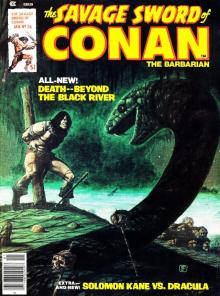 Beyond the Black River
Beyond the Black River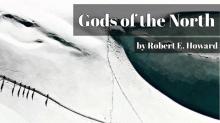 Gods of the North
Gods of the North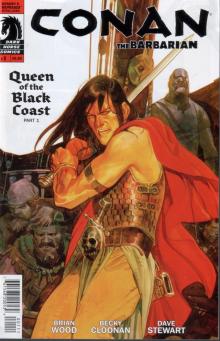 Queen of the Black Coast
Queen of the Black Coast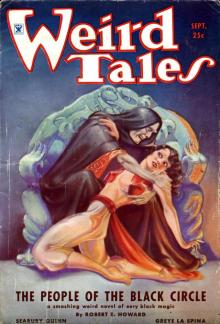 The People of the Black Circle
The People of the Black Circle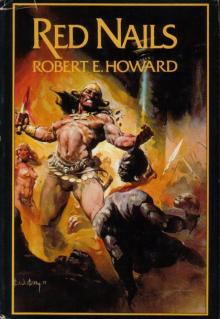 Red Nails
Red Nails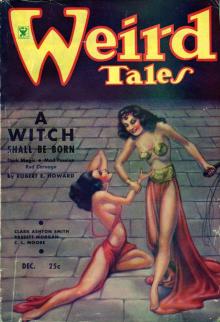 A Witch Shall Be Born
A Witch Shall Be Born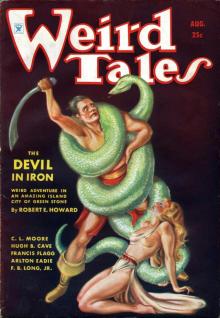 The Devil in Iron
The Devil in Iron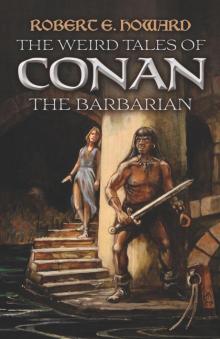 The Weird Tales of Conan the Barbarian
The Weird Tales of Conan the Barbarian The Bloody Crown of Conan
The Bloody Crown of Conan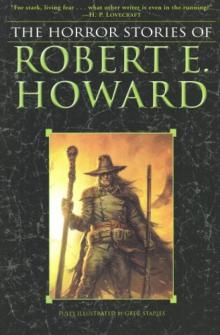 The Horror Stories of Robert E. Howard
The Horror Stories of Robert E. Howard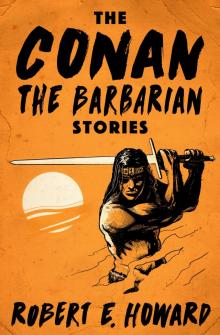 Conan the Conqueror
Conan the Conqueror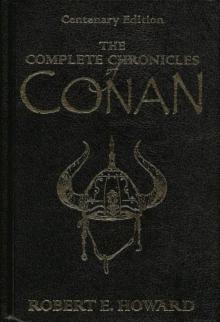 Conan the Barbarian
Conan the Barbarian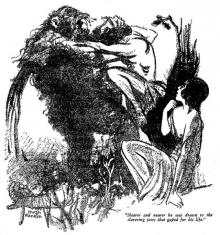 Shadows in the Moonlight
Shadows in the Moonlight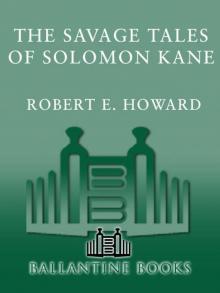 The Savage Tales of Solomon Kane
The Savage Tales of Solomon Kane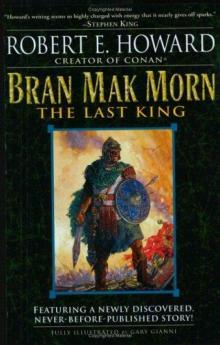 Bran Mak Morn: The Last King
Bran Mak Morn: The Last King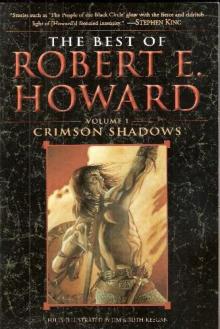 The Best of Robert E. Howard Volume One: Crimson Shadows
The Best of Robert E. Howard Volume One: Crimson Shadows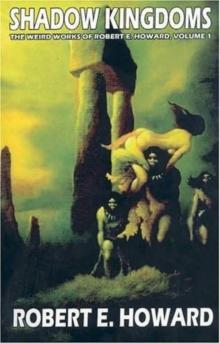 The Best of Robert E. Howard: Crimson Shadows (Volume 1)
The Best of Robert E. Howard: Crimson Shadows (Volume 1)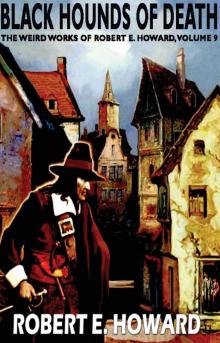 Black Hounds of Death
Black Hounds of Death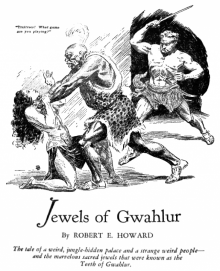 Jewels of Gwahlur
Jewels of Gwahlur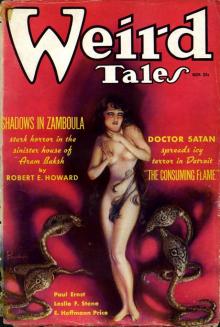 Shadows in Zamboula
Shadows in Zamboula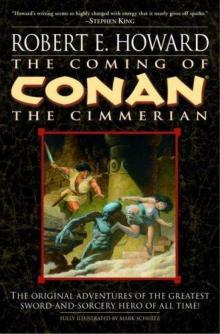 The Coming of Conan the Cimmerian
The Coming of Conan the Cimmerian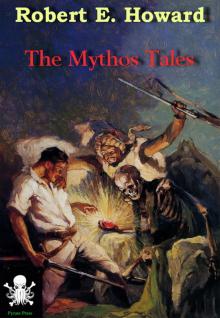 The Mythos Tales
The Mythos Tales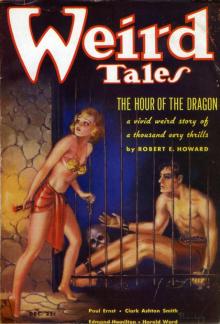 The Hour of the Dragon
The Hour of the Dragon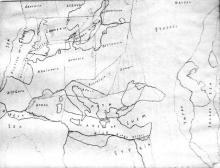 The Hyborian Age
The Hyborian Age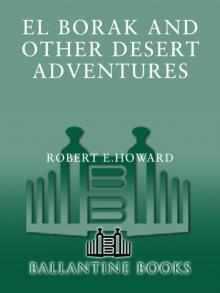 El Borak and Other Desert Adventures
El Borak and Other Desert Adventures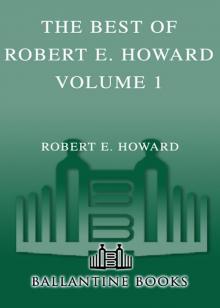 The Best of Robert E. Howard Volume 1 The Best of Robert E. Howard Volume 1
The Best of Robert E. Howard Volume 1 The Best of Robert E. Howard Volume 1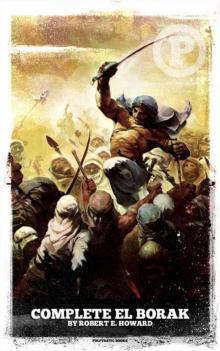 El Borak: The Complete Tales
El Borak: The Complete Tales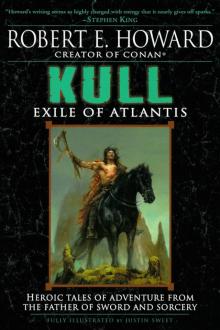 Kull: Exile of Atlantis
Kull: Exile of Atlantis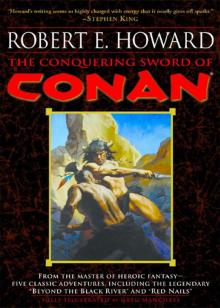 The Conquering Sword of Conan
The Conquering Sword of Conan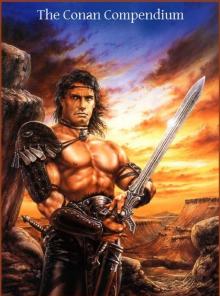 The Conan Compendium
The Conan Compendium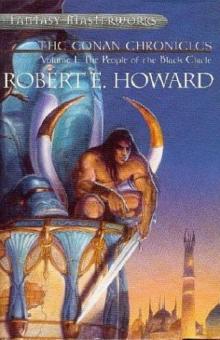 The Conan Chronicles: Volume 1: The People of the Black Circle
The Conan Chronicles: Volume 1: The People of the Black Circle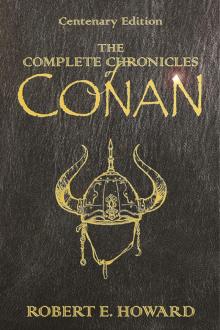 The Complete Chronicles of Conan: Centenary Edition
The Complete Chronicles of Conan: Centenary Edition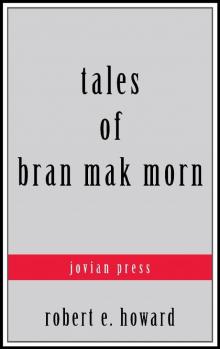 Tales of Bran Mak Morn (Serapis Classics)
Tales of Bran Mak Morn (Serapis Classics)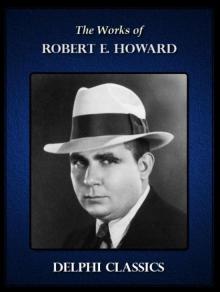 Delphi Works of Robert E. Howard (Illustrated) (Series Four)
Delphi Works of Robert E. Howard (Illustrated) (Series Four)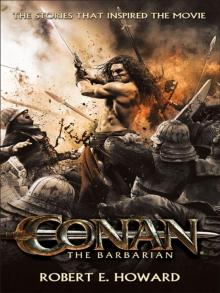 Conan the Barbarian: The Stories That Inspired the Movie
Conan the Barbarian: The Stories That Inspired the Movie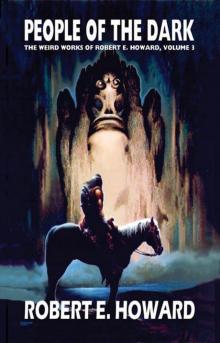 People of the Dark Robert Ervin Howard
People of the Dark Robert Ervin Howard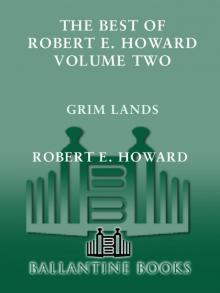 Grim Lands
Grim Lands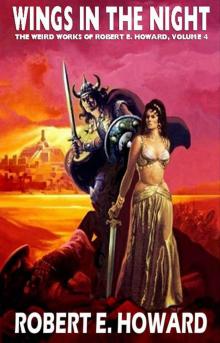 Wings in the Night
Wings in the Night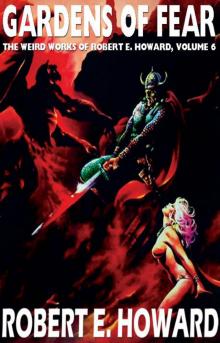 Gardens of Fear
Gardens of Fear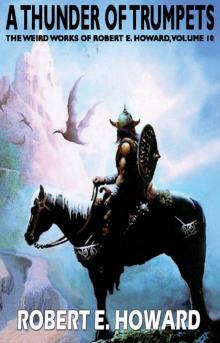 A Thunder of Trumpets
A Thunder of Trumpets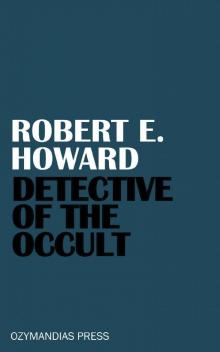 Detective of the Occult
Detective of the Occult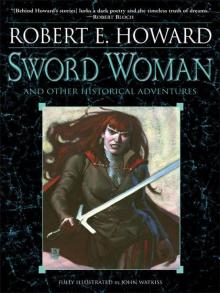 Sword Woman and Other Historical Adventures
Sword Woman and Other Historical Adventures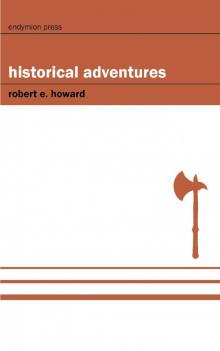 Historical Adventures
Historical Adventures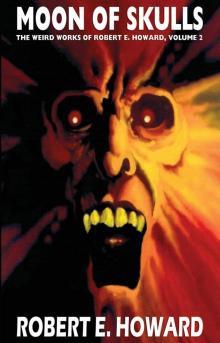 Moon of Skulls
Moon of Skulls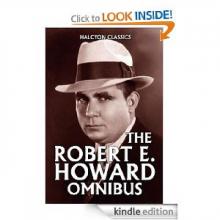 The Robert E. Howard Omnibus: 97 Collected Stories
The Robert E. Howard Omnibus: 97 Collected Stories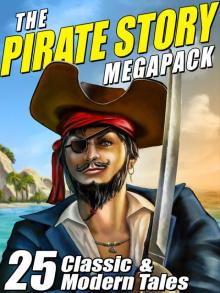 The Pirate Story Megapack: 25 Classic and Modern Tales
The Pirate Story Megapack: 25 Classic and Modern Tales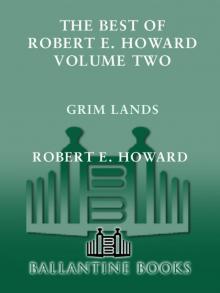 The Best of Robert E. Howard, Volume 2
The Best of Robert E. Howard, Volume 2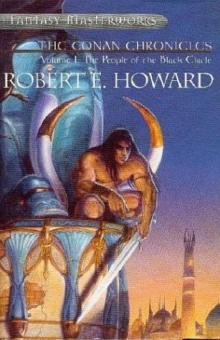 The Conan Chronicles, Vol. 1: The People of the Black Circle
The Conan Chronicles, Vol. 1: The People of the Black Circle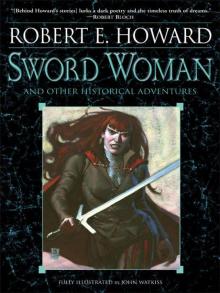 Sword Woman and Other Historical Adventures M
Sword Woman and Other Historical Adventures M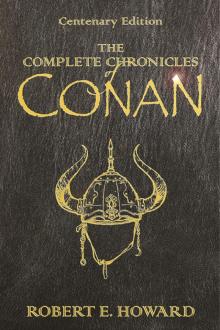 The Complete Chronicles of Conan
The Complete Chronicles of Conan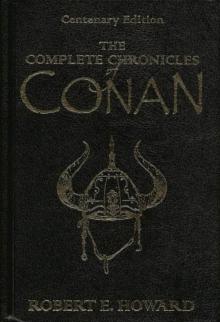 Conan the Barbarian: The Chronicles of Conan (collected short stories)
Conan the Barbarian: The Chronicles of Conan (collected short stories)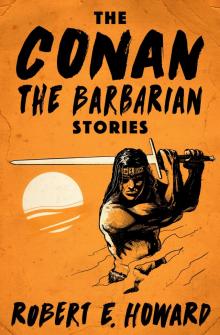 The Conan the Barbarian Stories
The Conan the Barbarian Stories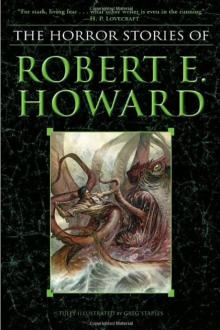 The Best Horror Stories of
The Best Horror Stories of Tigers Of The Sea cma-4
Tigers Of The Sea cma-4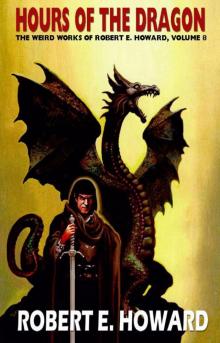 The Hours of the Dragon
The Hours of the Dragon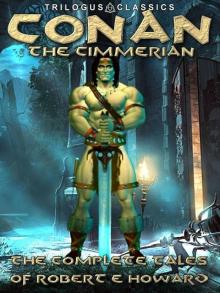 Conan the Cimmerian: The Complete Tales (Trilogus Classics)
Conan the Cimmerian: The Complete Tales (Trilogus Classics)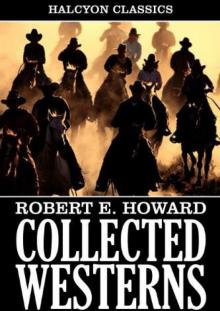 Collected Western Stories of Robert E. Howard (Unexpurgated Edition) (Halcyon Classics)
Collected Western Stories of Robert E. Howard (Unexpurgated Edition) (Halcyon Classics)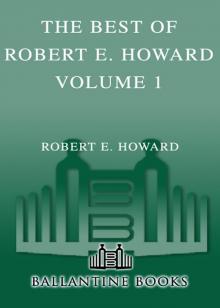 The Best of Robert E. Howard, Volume 1
The Best of Robert E. Howard, Volume 1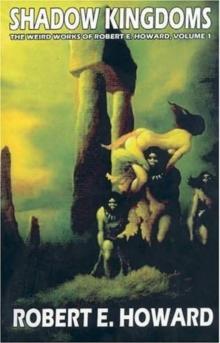 Shadow Kingdoms
Shadow Kingdoms